Picking a Dog Part II
Now that you’ve decided to get a puppy, adolescent, adult or senior dog from a breeder, rescue, or humane society, what comes next? How do you pick the specific dog who will be best suited for your household? Purebred breeders, rescues and humane societies are good options that usually result in success for good matches.
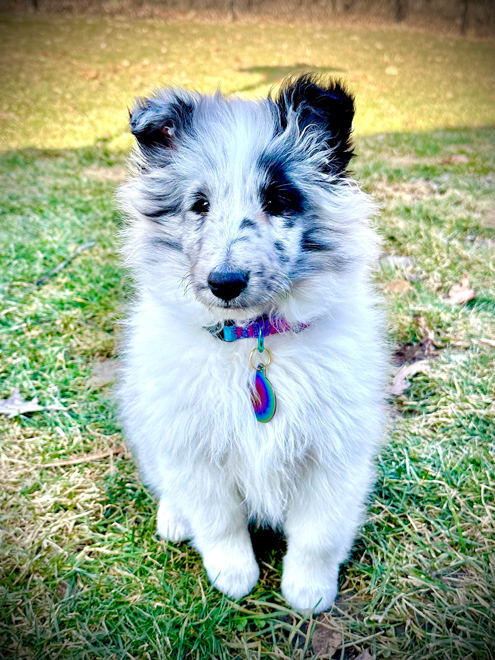
Jovie is a shetland sheepdog whose family bought her from a reputable breeder.
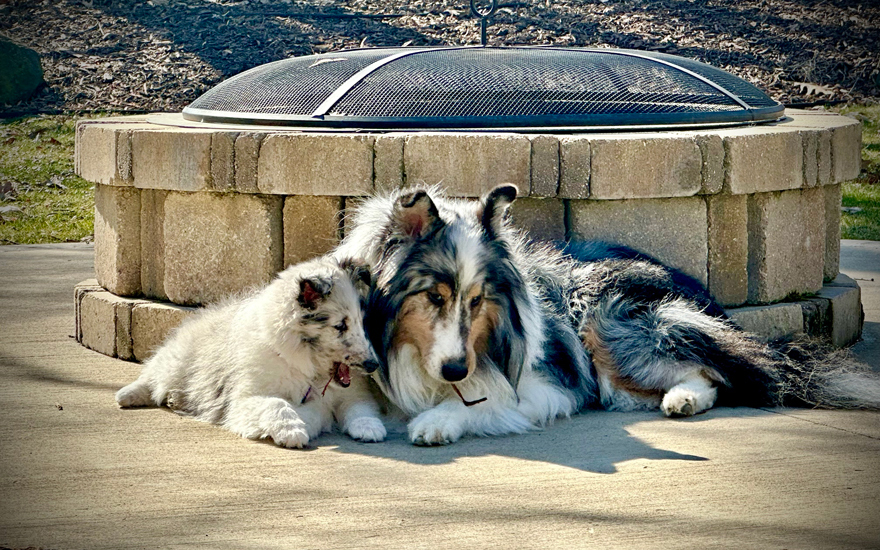
Shetland sheepdogs, affectionately known as shelties, are known to be smart, easy to train, affectionate and family oriented. In Jovie’s case, adorable is also a characteristic.
Purebred breeders
“If you decide on checking with a breeder, it’s important to meet with one who performs health testing on their dogs,” said Dr. Ellen Reinke. “Have the dogs had hip and elbow x-rays? Has the breeder done any genetic testing? That is important information when breeding healthy dogs, but it also offers a detailed measure for an adoptive family.”
Reinke said a good starting point for finding the best breeders is contacting the local AKC breed club. Those clubs are great places to find breeder recommendations for purebreds. “You can start your journey by asking what the breeders do with their dogs,” said Reinke. “For example, if your goal is to welcome a couch-potato labrador into your home, you might not find a good fit from a breeder who breeds active hunting labs.”
Reinke said it is sometimes possible to meet the parents or relatives of a puppy, or get referrals from previous puppy owners, who can provide insight about how a puppy’s lifelong personality might unfold. “A responsible breeder may ask you for referrals as well,” said Reinke. “Ideally, a breeder and puppy owner relationship should be lifelong. It’s helpful if you find someone you feel comfortable calling with questions. The breeders also enjoy getting updates throughout your dog’s life.”
If you’re getting a puppy from a breeder, consider having the breeder pick your puppy, Reinke said. “I know that is hard,” said Reinke, “but the breeders have gotten to know the various personality quirks of each individual puppy over many months. That means they may have the best insight into which puppy or puppies would fit your individual household the best.”
Reinke also suggested a strategy for the first meeting with a puppy. She recommends looking for the brave, outgoing puppy. “If puppies are hiding, cowering and barking at new people, that can be an indication the pup will struggle with socialization,” she said.
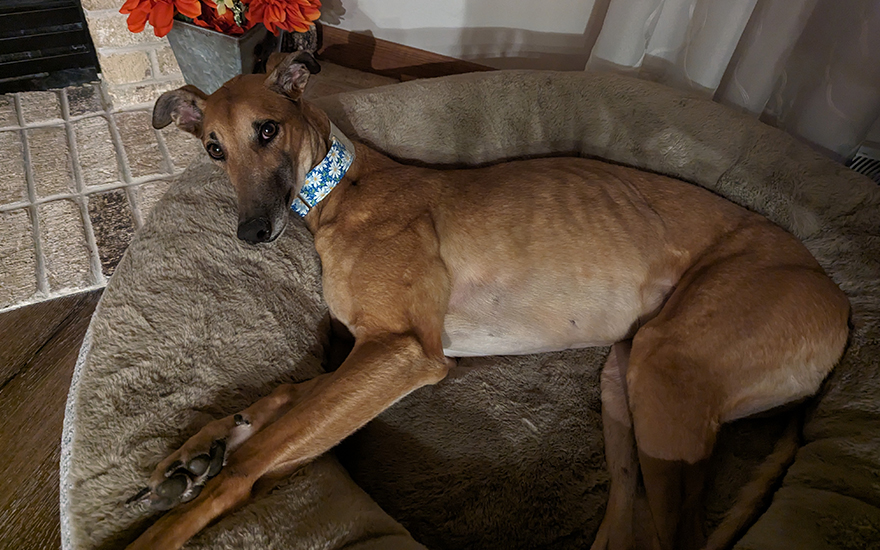
The adoptive family found Gilly at a greyhound rescue in the Milwaukee area in March 2024. She left the facility and lived with a foster family for a short time before she moved in with the family in her forever home.

Gilly is a 3-year-old greyhound whose last race was in December 2023. A 7- year-old member of the adoptive family got to choose the pup’s name. Gilly has a tiny mohawk that reminded the child of the dorsal fin on a bluegill she once caught.
Rescue
Perhaps your heart is in rescuing a dog. Rescues often become very good pets. Reinke said she recommends considering dogs who have been in foster homes, first, though. “Foster homes allow a decompression time for dogs to recover from a transition in environment, and experienced fosters can help pinpoint a dog’s personality traits,” she said.
“If a foster home is unavailable, spend lots of time during a meet-and-greet, so you’ll get some idea of a dog’s personality before taking it home. She also said it can take weeks for a dog to transition into living in a new home and acclimating to a new environment. “Don’t be surprised if your new dog’s personality changes after the transition period fades,” she said.
One great way to get to know a puppy or adult dog before committing to being a forever home is to pursue the foster-to-adopt option. Reinke said many rescues offer that option to help ensure a home is a good fit for the dog and for the family before it makes the commitment to lifelong care.
“No one likes to think about this, but it is important to ask a rescue about the return policy if a dog does not fit your household,” said Reinke. “Sometimes situations just don’t work out, and it’s best to have a plan just in case that happens.”
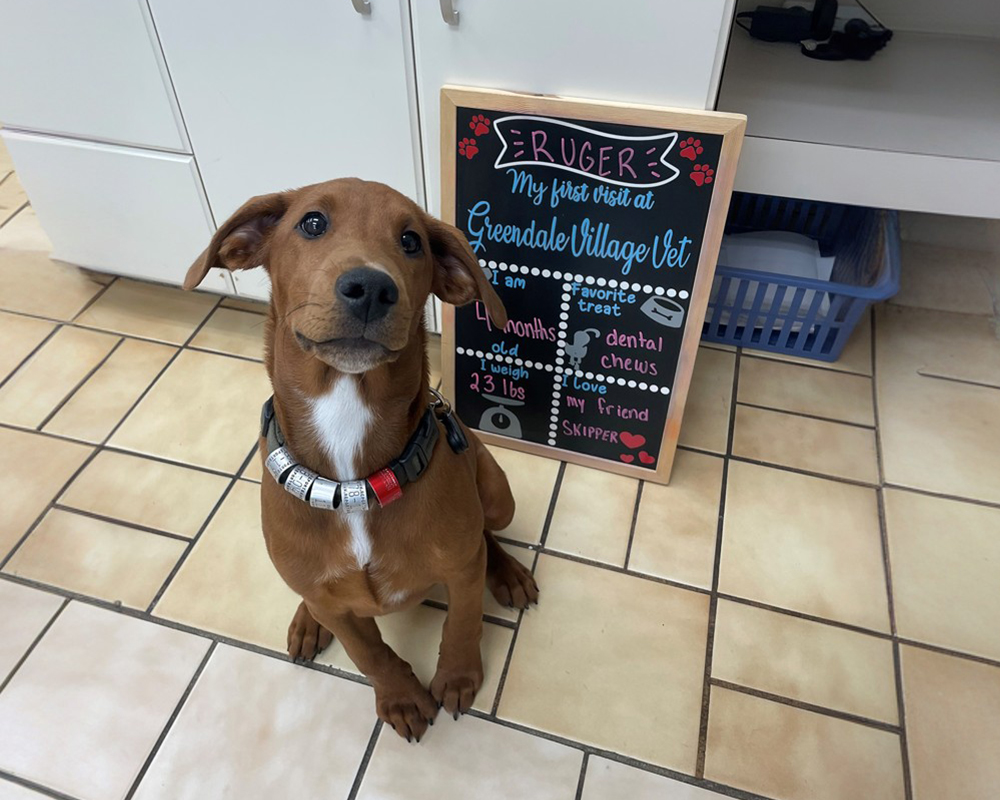
Ruger is a 5-month-old pupster who was adopted from the Wisconsin Humane Society.
Humane societies
Although most humane societies don’t often have dogs in foster homes, many local humane societies allow for meet-and-greet periods with dogs, said Reinke. “This allows families to make an assessment of a dog’s personality.” The Wisconsin Humane Society also has experienced behavior staff that assess its resident dogs’ personalities to help set dogs up for success in their new homes.
Choosing a dog and making a commitment to care for the pet for the rest of its life is a very big decision for any family. Following some basic suggestions about how to use a process will increase the chance your choice will be perfect for your family.
For more information, visit greendalevillagevet.com or call 414-421-1800.


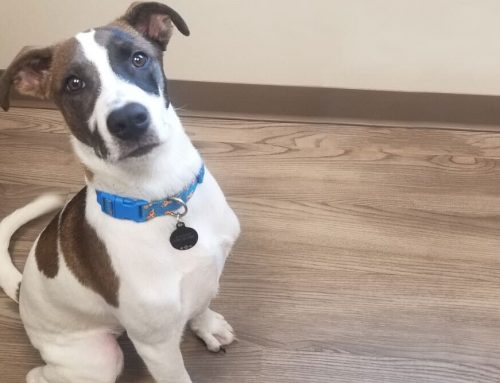




Leave A Comment